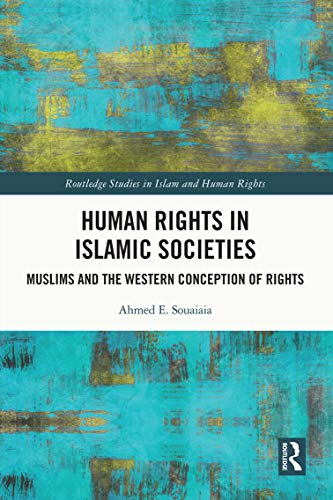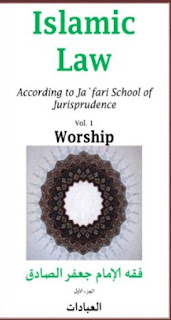Al-Dhihár & Al-Ílá'
Al-Dhihár
'Dhihár' means a husband telling his wife: "You are to me like the back of my mother". The schools concur that if a husband utters these words to his wife, it is not permissible for him to have sex with her unless he atones by freeing a slave. If he is unable to do so, he should fast for two successive months. If even this is not possible, he is required to feed sixty poor persons.
The schools also concur in considering a husband who has inter course before the atonement a sinner, and the Imámís also require him to make a double atonement.
The Imámís consider Dhihár valid if it takes place before two just male witnesses hearing the husband's pronouncement to the wife in a period of purity in which she has not been copulated with, exactly as in the case of divorce. Similarly, researchers among them also require her marriage to have been consummated, otherwise Dhihár will not take place. The reason for opening a separate chapter for Dhihaar in Islamic law are the opening verses of the Súrat al-Mujádilah. The exegetes describe that Aws Ibn Sámit, one of the Prophet's Companions, had a wife with a shapely body. Once he saw her prostrating in prayer. When she had finished, he desired her. She declined. On this he became angry and said: "You are to me like the back of my mother". Later he repented having said so. Dhihaar was a form of divorce amongst the pagan Arabs, and so he said to her: "I presume that you have become haraam for me. She replied: "Don't say so, but go to the Prophet (S) and ask him". He told her that he felt ashamed to question the Prophet (S) about such a matter. She asked him to permit her to question the Prophet (S), which he did. When she went to the Prophet (s), 'Aishah was washing his (S) head. She said: "O Apostle of God! My husband Aws married me when I was a young girl with wealth and had a family. Now, when he has eaten up my wealth and destroyed my youth, and when my family has scattered and I have become old, he has pronounced Dhihaar, repenting subsequently. Is there a way for our coming together, by which you could restore our relationship?" The Prophet (S) indicated that you have become haraam for him." She said, "O Prophet of God! By He Who has given you the Book, my husband did not divorce me. He is the father of my child and the most beloved of all people to me." The Prophet (S) replied, "I have not been commanded regarding your affair". The woman kept coming back to the Prophet (S) and once when the Prophet (S) turned her back she cried out and said: "I complain to God regarding my indigence, my need and my plight! O God, send upon The Prophet (S) that which would end my suffering". She then returned to the Prophet (S) and implored his mercy saying, "May I be your ransom, O Prophet of God, look into my affair." 'Aishah then said to her: "Curtail your speech and your quarrel. Don't you see the face of the Apostle of God?" When ever the Prophet (S) received revelation a form of trance would over take him. The Prophet (S) then turned towards her and said: "Call your husband." When he came, the Prophet (S) recited to him the verses:
God has heard the speech of her who disputes with you concerning her husband and complains to God. And God hears your colloquy. Surely God is the Hearer, the Seer. Those among you who pronounce Dhihaar to their wives, they (the wives) are not their mothers. Their mothers are only those who gave them birth; and they indeed utter an ill word and a lie, and indeed God is Pardoning, Forgiving. And those who pronounce Dhihaar to their wives and then recant their words, should free a slave before they touch each other. Unto this you are exhorted; and God is aware of your actions. And he who does not possess the means, should fast for two successive months before they touch each other. And he who is unable to do so, should feed sixty needy ones. This, that you may put trust in God and His Apostle. These are the limits set by God; and for unbelievers is a painful chastisement.(58:1—4)
After reciting these verses the Prophet (S) said to the husband: "Can you afford to free a slave?" The husband replied: "That will take up all my means." The Prophet (S) then asked him, "Are you capable of fasting for two successive months?" He replied: "By God, if I do not eat three times a day my eyesight becomes dim and I fear that my eyes may go blind." Then the Prophet (S) asked him, "Can you afford to feed sixty needy persons?" He replied: "Only if you aid me, O Apostle of God" The Prophet (S) said, "Surely I will aid you with fifteen' (a cubic measure) and pray for blessings upon you ." Aws, taking what the Prophet (S) had ordered for him, fed the needy and ate along with them and thus his affair with his wife was settled.
Al-Eela'
Eela' is an oath taken by a husband in God's name to refrain from having sex with his wife. The Qur'anic basis of this concept is verse 226 of the Surat al-Baqarah:
Those who forswear their wives (by pronouncing Eela'') must wait for four months; then if they change their mind, God is Forgiving, Merciful. And if they decide upon divorce, then God is surely Hearing, Knowing. (2:226—227)
The Imámís require that marriage should have been consummated in order for Eela' ' to be valid, otherwise Eela'' will not take place.
The schools concur that Eela'' takes place where the husband swears not to have sex with his wife for the rest of her life or for a period exceeding four months.17 The schools differ if the period is four months; the \anafís assert that it takes place and the other schools maintain that it doesn't.
There is consensus that if the husband has sex within four months, he must atone (for breaking his oath), but the hindrance to the continuation of marital relations will be removed. The schools differ where four months pass without sex. The \anafís observe: She will divorce herself irrevocably without raising the issue before the judge, or the husband will divorce her. (Bidaayat al-mujtahid )
The Maaliki, the Shaafi'ee and the \anbalí schools state: If more than four months pass without his having sex, the wife will raise the issue before the judge so that he may order the husband to resume sexual relations. If the husband declines, the judge will order him to divorce her. If the husband declines again, the judge will pronounce her divorce, and in all situations the divorce will be revocable. (Farq al-zawaaj of al Khafeef)
The Imámís state: If more than four months pass without sex, and the wife is patient and willing, it is up to her and no one is entitled to object. But if she loses patience, she may raise the issue before the judge, who, on the completion of four months,l8 will compel the husband to resume conjugal relations, or to divorce her. If he refrains from doing either, the judge will press him and imprison him until he agrees to do either of the two things, and the judge is not entitled to pronounce divorce forcibly on behalf of the husband.
All the schools concur that the atonement for an oath is that the person taking the oath should perform one of these alternatives: feed ten needy persons, provide clothing to ten needy persons, free a slave. If he has no means for performing any of these, he should fast for three days.
Furthermore, according to the Imámís, only those oaths which are sworn in the name of the sacred Essence of God will be binding. The oath of a child and a wife is not binding if the father and the husband prohibit it, except when the oath is taken for performing a Waajib or for refraining from a haraam. Similarly, an oath will not be binding upon anyone if it is taken to perform an act refraining from which is better than performing it, or is taken to refrain from an act whose performance is better than refraining from it, except, of course, the oath of Eela'' which is binding despite the fact that it is better to refrain from it.




0 comments:
Post a Comment